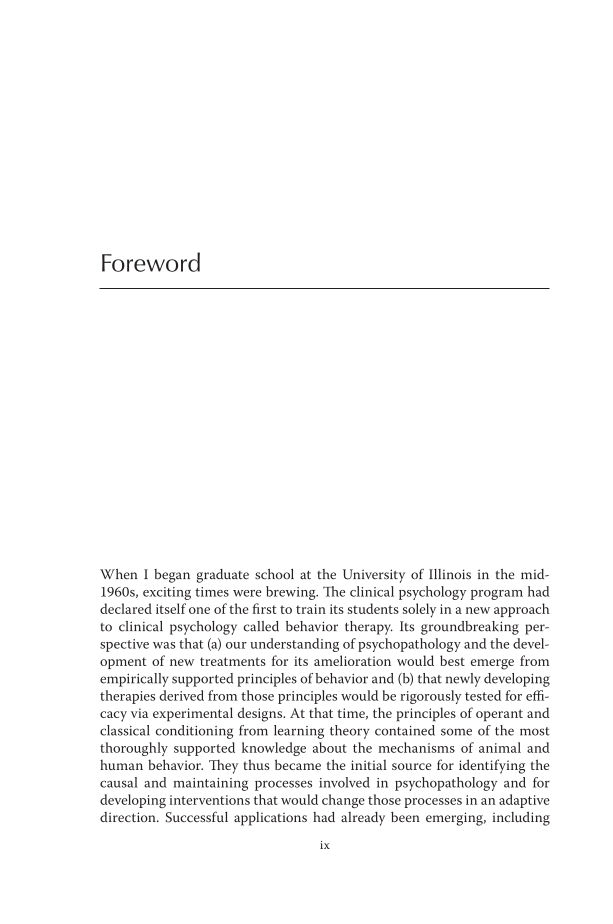ix Foreword When I began graduate school at the University of Illinois in the mid- 1960s, exciting times were brewing. The clinical psychology program had declared itself one of the first to train its students solely in a new approach to clinical psychology called behavior therapy. Its groundbreaking per- spective was that (a) our understanding of psychopathology and the devel- opment of new treatments for its amelioration would best emerge from empirically supported principles of behavior and (b) that newly developing therapies derived from those principles would be rigorously tested for effi- cacy via experimental designs. At that time, the principles of operant and classical conditioning from learning theory contained some of the most thoroughly supported knowledge about the mechanisms of animal and human behavior. They thus became the initial source for identifying the causal and maintaining processes involved in psychopathology and for developing interventions that would change those processes in an adaptive direction. Successful applications had already been emerging, including
Document Details My Account Print multiple pages
Print
You have printed 0 times in the last 24 hours.
Your print count will reset on at .
You may print 0 more time(s) before then.
You may print a maximum of 0 pages at a time.




































































































































































































































































